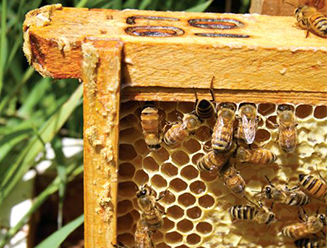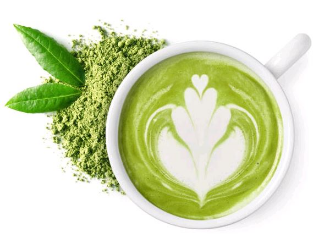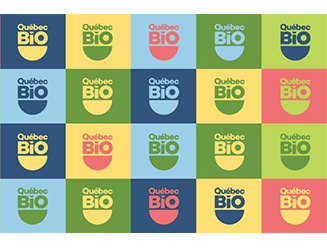The benefits of propolis have been known for millennia. As we wrote in our last article, The origin of apitherapy, its use dates back to antiquity. Indeed, the Egyptians used it to embalm the dead, since it has antifungal and antibacterial properties.
Moreover, the bees themselves use it in part in the same way! They mummify small animals that enter the hive and that they are unable to expel, to prevent them from decomposing and bacteria proliferating.
Anti-infective, propolis is also used as a sanitizer that the bees deposit in the cells before the queen lays her eggs. The workers also use it to seal cracks and seal the hive, like a mortar. This is one of the ways that we harvest propolis, either by installing grids that the bees hasten to clog with this substance. To learn more and see photos, read our article Our beekeeping secrets: harvesting propolis.
In short, bees produce propolis for several reasons, which allows us to see the extent of its properties. But does propolis have any real benefits for the overall health of humans?
To answer this question — which we are asked very often! — we thought of doing an overview of its main properties. They are demonstrated by real studies, the references of which you will find at the bottom of the article.
The main studied properties of propolis:
Antibacterial, antifungal and antiviral properties
The most documented of all, the antibacterial properties of propolis have been scientifically established since the 1950s. The substance produced by bees has a very broad antibacterial spectrum, varying according to the type of bacteria. Propolis owes its bactericidal effect to its composition, in particular a high content of flavonoids and aromatic and phenolic molecules.
Propolis also has antifungal properties – demonstrated among other things thanks to a study on nail fungus! This property explains why the corpses of small animals mummified by bees in the hive show no mold.
The antiviral properties of propolis, for their part, would act, among other things, on viruses of the Herpes type, on adenoviruses or even the flu.
Healing and antioxidant properties
Propolis promotes scarring and healing of burns, reducing tissue inflammation and accelerating healing. It is the high concentration of amino acids in propolis that acts on cell renewal, while its high content of flavonoids gives it antioxidant properties that eliminate free radicals.
Anti-inflammatory properties
The flavonoids that make up propolis also give it anti-inflammatory properties. Its positive action on the cells responsible for a good immune response has also been observed.
Anesthetic properties
Propolis acts as an anesthetic; its local application reduces skin sensitivity. For this reason, it can also be used to relieve toothache.
When and why to use propolis in everyday life?
Fervent followers of propolis at home, we use it occasionally on minor burns and cuts, for its healing and pain-relieving properties.
Above all, we use it daily during seasonal changes to prevent sore throats, as soon as a tingling is felt in the throat, in the event of a sore in the mouth or an oral infection.
Very conscientious when it comes to talking about science and medicine, we won’t go so far as to call it a “miracle product”… But propolis is certainly an effective antiseptic product to add to your arsenal to deal with the harsh climate of Quebec. ! It’s proven!
Source: merveilles d’abeilles
https://www.merveillesdabeilles.biz/benefits-of-propolis/?mc_cid=ef29fdda8c&mc_eid=597497a0f8





